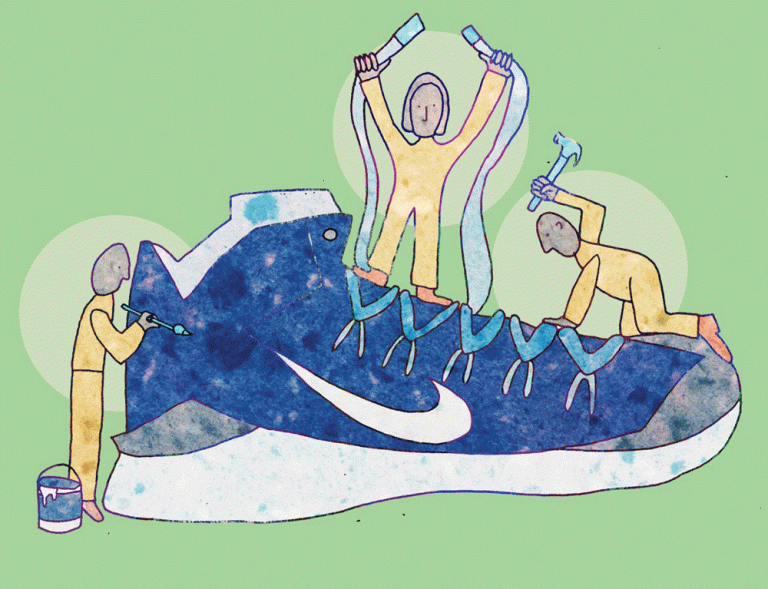
Jackie Caldwell
Staff Writer
In 2016, Forbes Magazine ranked Nike as the world’s most valuable sports brand, but that doesn’t exempt the corporation from the University of California, Santa Barbara’s anti-sweatshop policy. The university’s athletics department confirmed May 23 that it will drop Nike as the school’s athletic sponsor, because the university cannot confirm whether Nike factories comply with supplier standards.
Typically, large retailers don’t produce their own clothing. Instead, they hire manufacturers who enter into contracts with small factories. Because there are often a lot of these factories, they can be hard to monitor, and retailers often ignore the way the workers in those factories are treated. While not all small factories violate workers’ rights, some of them, known as sweatshops, have infamously poor working conditions.
Long hours, low wages, unsanitary conditions, violations of safety laws, and verbal and physical abuse are just a few of the things sweatshop workers experience.
In 2006, the UC agreed to implement the Designated Suppliers Program. The DSP was created by the Worker Rights Consortium and United Students Against Sweatshops to help protect the rights of the workers who make university apparel.
Universities that have agreed to the terms of the DSP, such as all the UC campuses, must obtain most of their university logo apparel from supplier factories that respect the rights of their employees in the ways that the DSP stipulates. To be in accordance with DSP standards, a factory’s employees must be paid a living wage and be able to organize and bargain collectively.
Additionally, the factory itself must comply with internationally recognized labor standards. To ensure that supplier factories are in accordance with these standards, the WRC investigates the factories that produce university apparel.
Because UCSB cannot confirm that Nike factories are in accordance with the DSP, the university will look for another company — possibly Under Armour, which has already signed with UC Berkeley.
Various WRC reports from 2007 to 2008 connect Nike to sweatshops in Thailand, the Dominican Republic, and Honduras. Despite these reports, workers’ rights violations seem to have continued. In 2011, workers at a Nike Converse factory in Indonesia claimed that they were verbally and physically abused by factory supervisors.
Many universities throughout the United States, including UCSB, rely on the WRC to report on the conditions of the factories used to produce university apparel. However, Nike has recently blocked the WRC from entering its supplier factories, according to reports.
According to Bill Mahoney, assistant athletics director for communications, the change shouldn’t have that big of an impact on the campus overall. While Nike used to be a premier brand, “it doesn’t hold as much sway as it used to,” he said.










